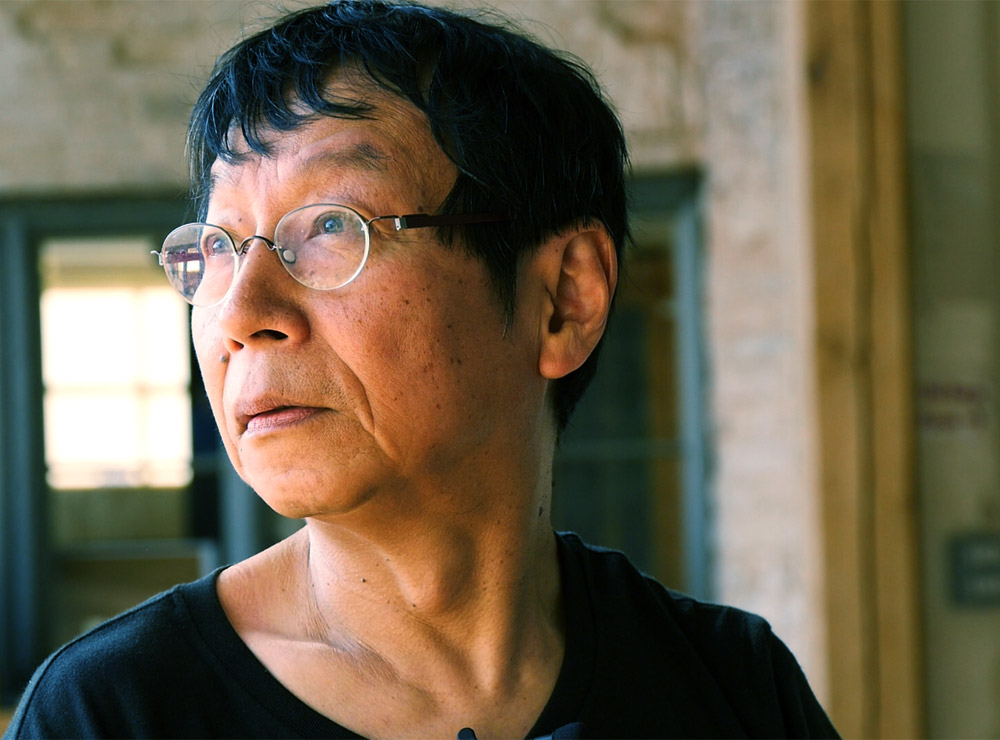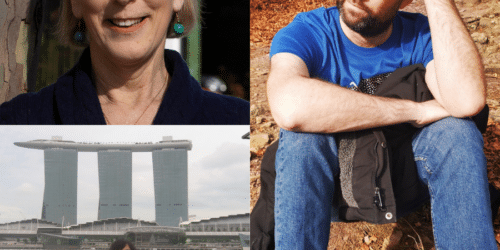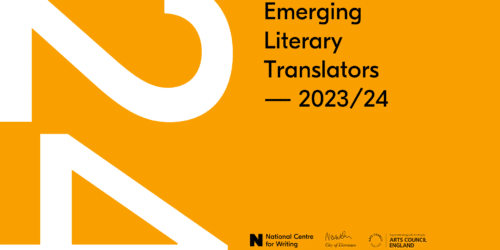
My only obligation while my wife and I stayed in Norwich for the whole month of August was to get my work done. And I did get a lot done. I worked at home, worked at the library, worked at cafés and pubs. Everywhere I went, I carried my pen, my notebook, printouts of my text, and my electronic dictionary.
It’s great to work at a café or pub, a comfortable place run by friendly people, with a good cup of tea or coffee, or a glass of fine ale in front of you, all of which are easy to find in Norwich. Music makes it even better if it’s the right kind – I hate most of today’s pop music but it’s easy to avoid that sort of thing in Norwich. While I was there I heard a number of old songs I hadn’t heard for decades, tunes like “Touch Me, Touch Me” by Dave Dee, Dozy, Beaky, Mick & Tich, or “Suddenly You Love Me” by the Tremeloes …
I sometimes work at a café in Tokyo, but it’s not always easy: the conversations going on around me are often distracting. When I’m translating, I don’t like to hear people complain about how stupid their boss is (though I’m sure he is), or a couple discussing ad nauseum the respective pros and cons of going to Hawaii or Bali for vacation (how about the netherworld, I want to suggest).
I do hear conversations in Norwich cafés and pubs, but fortunately it’s all in rapid British English, a language I don’t comprehend all that well, so mostly it’s just sound to me if I don’t pay attention (actually even if I do). It’s pleasant if they’re talking happily, less pleasant if it sounds unhappy, but in Norwich most people seem to be happy, or at least manage to sound happy in public. It’s probably just as well that I don’t understand what they are talking about. I used to pity my English-speaking colleagues at the University of Tokyo, who had to sit uncomprehendingly through long faculty meetings, but then I’d wonder if they would be better off if they could follow what was going on.
Most of the time, however, I worked at home. We were provided with a very nice apartment in the city centre, right across from the Cathedral, on a quiet side lane, where the only things to be heard were seagulls and church-bells. Reading Andrew Cowan’s astonishing Worthless Men, a novel set around the Norwich of 1916, late at night with only the calls of the seagulls in the background was one of the pleasantest moments I had during a stay full of pleasant moments.
From our first-floor window, we could see people passing by, a surprisingly interesting pastime as it turned out. Yet it was a certain cat that drew our attention most: a tabby cat we saw walking down the lane almost every day. He (actually I don’t know if it was he or she, but let’s assume he) always appeared from the same direction, ambling along the lane, staying close to the double yellow lines along the edge of the lane, and inevitably turning left when he got to the back of the Indian restaurant on the corner. It occurred to me that his contentment, the way he lazily carried his plump body down the lane, exactly mirrored the contentment I felt, translating American authors Paul Auster and Nathanael West in this very English city, looking at the contented cat on the street from time to time, and in the evening checking out a new pub, an activity for which, as everyone who’s been to Norwich knows, one month is by no means enough …
A big salute to everyone at Writers’ Centre Norwich, especially to the ever-helpful and friendly Kate Griffin.
About Motoyuki
Motoyuki Shibata teaches American literature and literary translation at the University of Tokyo. Authors he has translated include Edward Gorey, Paul Auster, Steve Erickson, Steven Millhauser, Richard Powers, Stuart Dybek, Rebecca Brown, and Barry Yourgrau. The American Narcissus, his collection of critical essays, received the Suntory Prize for Social Sciences and Humanities in 2005. Shibata also translates Japanese to English, and he has received numerous awards for his work translating in both directions. He is the editor of the English-language literary journal Monkey Business, as well as of the Japanese-language journal Monkey.







